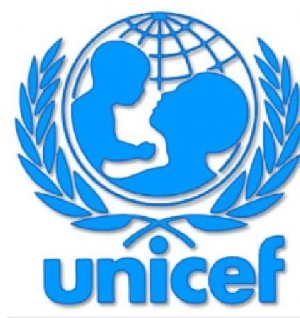A two-day joint workshop to implement a more effective and efficient delivery of social services for the most vulnerable people in Ghana has begun in Greater Accra.
The workshop led by several ministries in the Government of Ghana, with support from UNICEF, DFID, USAID and other partners, marks the start of implementation of the Integrated Social Services (ISS) initiative across nine Metropolitan, Municipal and District Assemblies (MMDAs) in the Greater Accra Region.
The ISS seeks to strengthen the intersectoral collaboration among social welfare, social protection and health actors at the decentralized and national level, to improve the delivery of social services across the country.
According to a recent study by the National Development Planning Commission (NDPC) and UNICEF, approximately 73% of Ghanaian children are multi-dimensionally poor. In other words, they suffer deprivation in three or more dimensions in their life, thereby making it challenging for any single programme to respond to their needs.
UNICEF Representative in Ghana, Anne-Claire Dufay said: “In today’s time, vulnerabilities faced by children and families living in poverty are further compounded by the effects of COVID19, thereby placing them at heightened risk. Recognizing that a well-coordinated multi-sectoral response is needed to effectively address multidimensional poverty, the ISS has a strong focus on promoting linkages between LEAP, NHIS, GHS and Social Welfare services with a cross-cutting emphasis on Planning and Finance.”
As an example, for a vulnerable household on the Livelihood Empowerment Against Poverty (LEAP) programme, this could mean increased access to health services, social welfare services and health insurance by way of regular quarterly households visits from CHPS nurses.
Under the ISS, CHPS nurses would have the tools and skills required to screen the individual NHIS status of members, screen for and address neonatal and maternal health issues in the family and record and refer any high-risk cases of sexual and gender-based violence and abuse to DSWCD in addition to conducting their community health screening as part of routine household visits.
In this example, GHS would play a critical role in strengthening linkages between LEAP, NHIS, Health Services and DSWCD for improved healthcare, social and child protection. These services would be working closely at the district assembly to improve their planning and financing to operate in an integrated and cost-efficient way, whilst the national level would be looking at bottlenecks or opportunities to improve integrated collaboration from a policy-level and systems-perspective.
The ISS initiative is led by the Ministry of Gender, Children and Social Protection (MoGCSP) and the Office for the Head of the Local Government Services (OHLGS) with close collaboration from Ghana Health Services (GHS), Ministry of Local Government and Rural Development (MLGRD), National Health Insurance Authority (NHIA), National Development Planning Commission (NDPC) and the Ministry of Finance (MoF).
Technical and financial support has been provided by UNICEF, USAID and DfID, towards finding and strengthening cost-effective ways to harmonize services at the decentralized level for the benefit of the most vulnerable populations. For the pilot phase, 60 MMDAs across 16 regions have been selected as a representative sample of the various geographic and demographic realities in Ghana, through extensive dialogue and consultation with various stakeholders.
Lessons learned in this phase with respect to coordination, planning and financing at the decentralized level will eventually be used to promote best practices and scaling up of ISS implementation beyond the pilot districts.
Regional News of Thursday, 9 July 2020
Source: Evelyn Baddoo, Contributor













